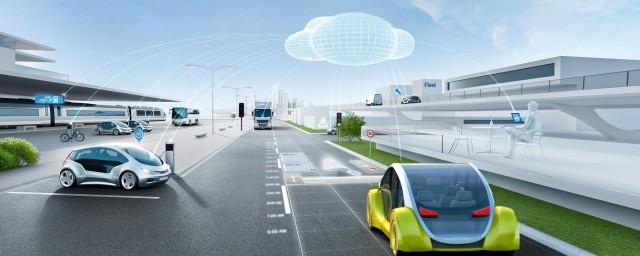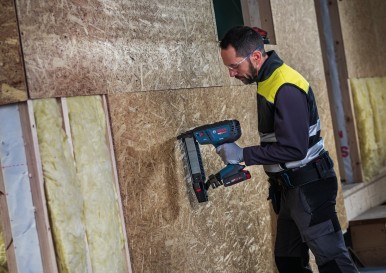Berlin – It is the dawning of the age of the connected car. Starting in March 2018, the eCall automatic emergency call system will be mandatory in the EU. This means that every new car will be a connected car by default. The market research company Gartner forecasts that by 2020, there will be 250 million connected cars on the world’s roads. As cars increasingly become mobile devices on wheels, interested buyers are focusing more and more on digital services, such as ones that monitor the car’s condition or warn of wrong-way drivers. According to a survey by the German Consumer and Media Analysis group (VuMA 2017), more than a quarter of the German population already views integrated internet access as a key consideration when buying a car. Speaking at the international Bosch ConnectedWorld 2017 conference in Berlin, Bosch board of management member Dr. Dirk Hoheisel said, “Services for connected cars are increasingly becoming a differentiating factor within the automotive industry.” Hoheisel also announced the launch of the Bosch Automotive Cloud Suite, a new platform for mobility services. The Automotive Cloud Suite offers automakers and all mobility service providers a software platform plus a comprehensive toolkit for developing all kinds of services for drivers and for quickly bringing them to a wide market. Hoheisel continued: “Drivers also benefit from the Automotive Cloud Suite’s wider, yet more personalized range of services.”
About Bosch
The Bosch Group is a leading global supplier of technology and services. It employs roughly 418,000 associates worldwide (as of December 31, 2024). The company generated sales of 90.3 billion euros in 2024. Its operations are divided into four business sectors: Mobility, Industrial Technology, Consumer Goods, and Energy and Building Technology. With its business activities, the company aims to use technology to help shape universal trends such as automation, electrification, digitalization, connectivity, and an orientation to sustainability. In this context, Bosch’s broad diversification across regions and industries strengthens its innovativeness and robustness. Bosch uses its proven expertise in sensor technology, software, and services to offer customers cross-domain solutions from a single source. It also applies its expertise in connectivity and artificial intelligence in order to develop and manufacture user-friendly, sustainable products. With technology that is “Invented for life,” Bosch wants to help improve quality of life and conserve natural resources. The Bosch Group comprises Robert Bosch GmbH and its roughly 490 subsidiary and regional companies in over 60 countries. Including sales and service partners, Bosch’s global manufacturing, engineering, and sales network covers nearly every country in the world. Bosch’s innovative strength is key to the company’s further development. At 136 locations across the globe, Bosch employs some 87,000 associates in research and development.
The company was set up in Stuttgart in 1886 by Robert Bosch (1861–1942) as “Workshop for Precision Mechanics and Electrical Engineering.” The special ownership structure of Robert Bosch GmbH guarantees the entrepreneurial freedom of the Bosch Group, making it possible for the company to plan over the long term and to undertake significant upfront investments in the safeguarding of its future. Ninety-four percent of the share capital of Robert Bosch GmbH is held by Robert Bosch Stiftung GmbH, a limited liability company with a charitable purpose. The remaining shares are held by Robert Bosch GmbH and by a company owned by the Bosch family. The majority of voting rights are held by Robert Bosch Industrietreuhand KG. It is entrusted with the task of safeguarding the company’s long-term existence and in particular its financial independence – in line with the mission handed down in the will of the company’s founder, Robert Bosch.
Additional information is available online at www.bosch.com, www.bosch-press.com.






